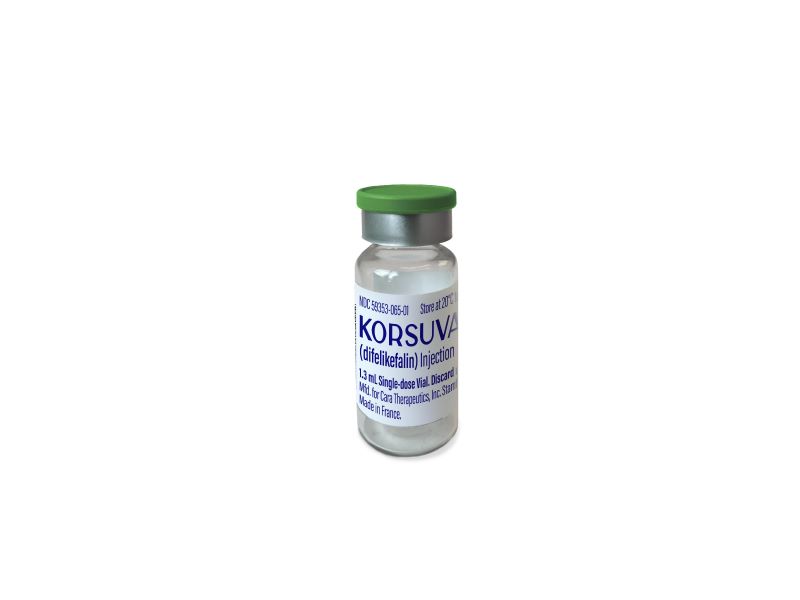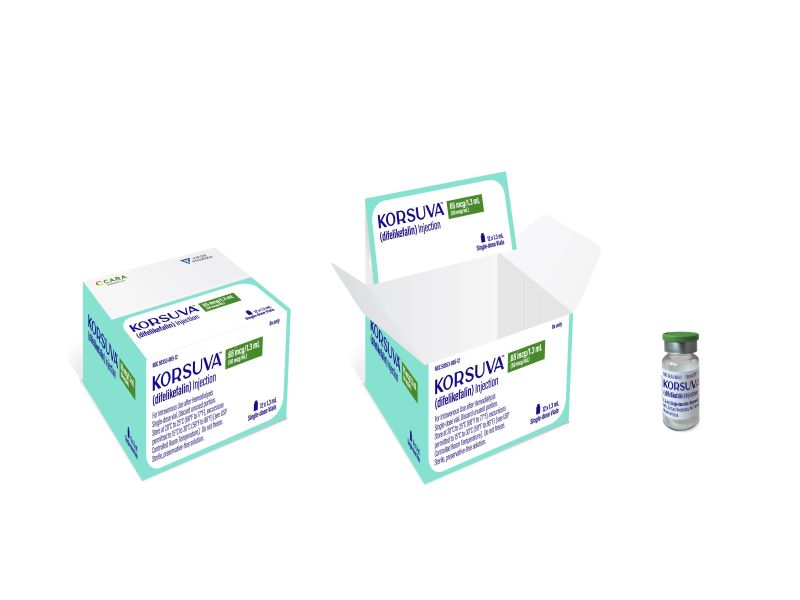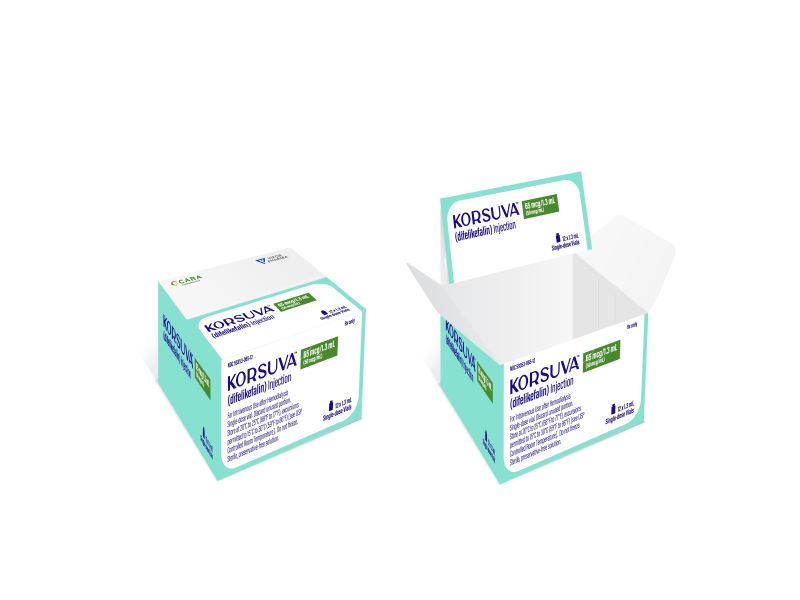Korsuva™ (difelikefalin) is a first-in-class treatment option indicated for moderate-to-severe pruritus associated with chronic kidney disease (CKD-aP) in adults on haemodialysis.
Developed by US-based biotechnology company Cara Therapeutics (Cara), Korsuva™ is available in a single-dose glass vial containing 65mcg/1.3ml (50mcg/ml) as a clear, colourless solution.
Cara and Vifor Fresenius Medical Care Renal Pharma (VFMCRP), a joint company of Vifor Pharma and Fresenius Medical Care, entered into a collaboration to commercialise intravenous (IV) Korsuva™ to treat CKD-aP patients undergoing haemodialysis across the world excluding the US, Japan and South Korea, in May 2018. Cara and VFMCRP have agreed to market KORSUVA™ injection to Fresenius Medical Care North America dialysis clinics in the U.S. under a Cara 50%, Vifor Pharma 50% profit-sharing arrangement
In October 2020, Vifor Pharma and Cara have agreed to an exclusive license to commercialize Korsuva™ injection in the United States. That agreement features a Cara 60%, Vifor Pharma 40% profit-sharing arrangement in non-Fresenius Medical Care clinics in the U.S.
Vifor Pharma is expected to start promotional activities in the US for the launch of Korsuva™ injection in the first quarter of 2022.
Regulatory approvals for Korsuva
In December 2020, Cara Therapeutics submitted a new drug application (NDA) to the US Food and Drug Administration (FDA) for its injectable form of difelikefalin for the treatment of moderate-to-severe pruritus in patients on haemodialysis.
The FDA accepted the NDA under priority review in March 2021 and approved the drug to treat moderate-to-severe pruritus associated with chronic kidney disease in adults undergoing haemodialysis in August 2021. The drug also holds FDA breakthrough therapy designation.
The European Medicines Agency (EMA) accepted a marketing authorisation application for difelikefalin injection for review in March 2021.
Causes and symptoms of CKD-aP
CKD-aP is an intractable systemic itching condition, one of the common symptoms observed in chronic kidney disease (CKD) patients undergoing dialysis. Patients with stage III-V CKD who are not on dialysis have also experienced the condition. Pruritus is reported in about 70% of dialysis patients, with 30% to 40% experiencing moderate or severe pruritus.
Patients with moderate-to-severe CKD-associated pruritus often report a poor quality of life, depression and poor sleep quality.
Korsuva mechanism of action
Korsuva™ is a kappa-opioid receptor agonist that exerts anti-pruritic effects by targeting the kappa-opioid receptor in the peripheral nervous system.
Clinical trials on Korsuva
The FDA’s approval of Korsuva™ was based on results from two Phase III randomised, multi-centre, double-blind, placebo-controlled clinical trials, KALM-1 and KALM-2, along with supportive data from an additional 32 clinical studies. The KALM-1 trial was conducted in the US, while the global KALM-2 trial enrolled dialysis patients in the US, Europe and Asia-Pacific.
The trials evaluated the efficacy and safety of Korsuva™ in 851 haemodialysis patients aged 18 years and older who had been diagnosed with CKD-aP. The patients were randomly assigned to receive either Korsuva™ 0.5mcg/kg into the venous line of the haemodialysis circuit three times a week after each dialysis session, or placebo three times a week for 12 weeks.
Both studies’ primary endpoint was the proportion of patients who improved at least three points from baseline at week 12 in the weekly mean score on the 24-hour Worst Itching Intensity Numerical Rating Scale (WI-NRS).
In the KALM-1 study, 40% of patients treated with Korsuva™ showed improvement in the condition, compared with 21% of the placebo-treated patients at week 12. In the KALM-2 study, 37% of the Korsuva™-treated patients achieved point improvement from baseline in WI-NRS score, compared with 26% of patients treated with placebo at week 12.
Korsuva™ injection was found to be generally well-tolerated. Common adverse reactions reported in patients during the trials were diarrhoea, dizziness, nausea, and gait disturbances including falls, as well as hyperkalaemia, headache, somnolence and changes in mental status.





